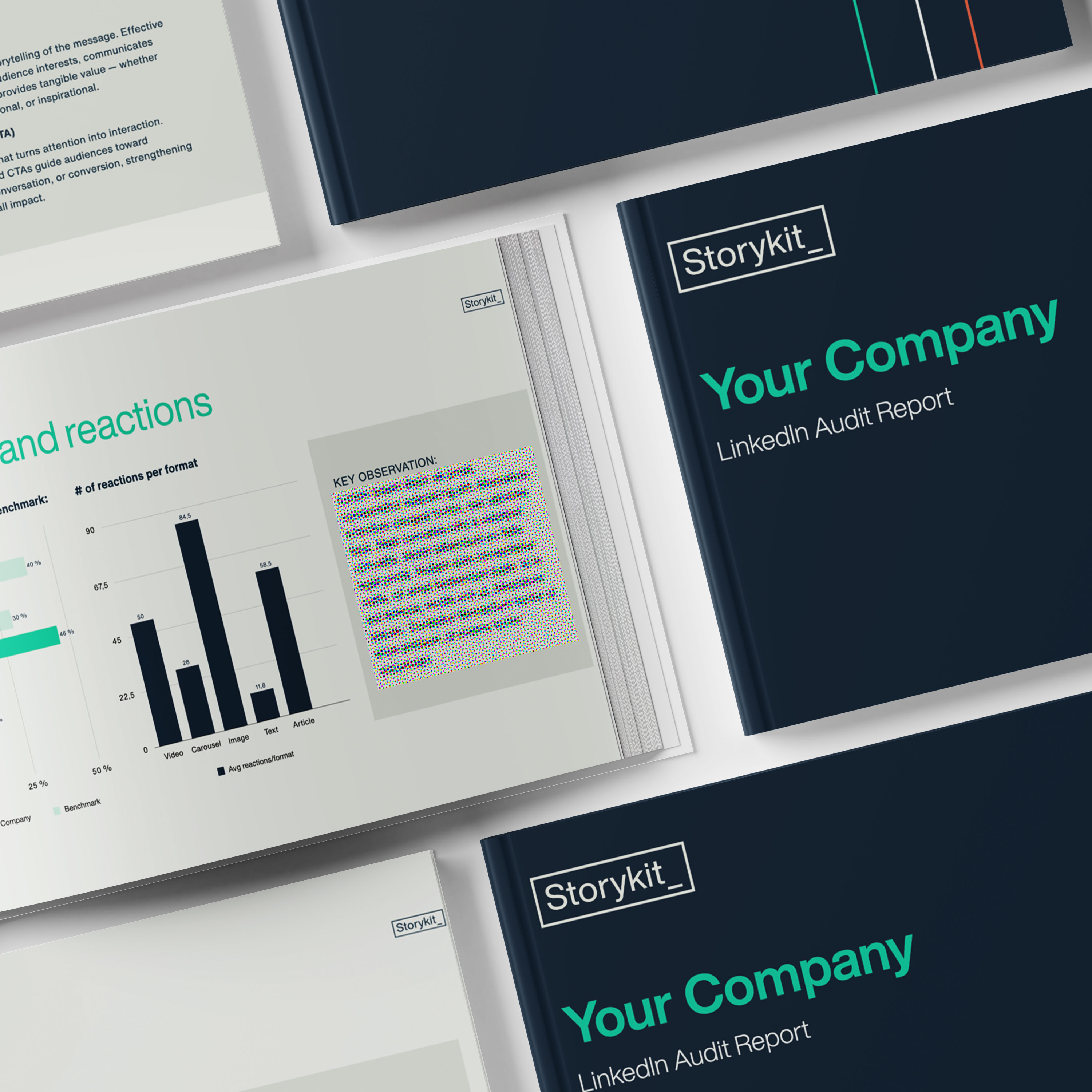Reporting season might be over, but the real opportunity is just beginning.
Whether it’s your Q1 performance update, an industry trends report, customer research, or a data-backed whitepaper—these assets are rich with insight and potential.
But too often, reports are published, and then forgotten. One LinkedIn post, maybe a newsletter mention, and that’s it.
All that work, all those insights—gone quiet after one round of distribution. Don’t even get me started on paywalls—nothing kills momentum faster than forcing someone to fill out a form just to skim your findings.
The truth is, a report is only as valuable as the attention it gets.
And that attention? It doesn’t come from simply hitting “send” or uploading a PDF. It comes from intentional, strategic report distribution—getting your insights in front of the right people, in the right format, on the right channels.
In this article, we’ll break down why report distribution matters more than ever, the top mistakes companies make when trying to get their reports seen, and how video can turn your report into powerful marketing content that engages your audience and extends its reach.
Why distribution matters for your reports
Reports often come packed with dense chapters and lengthy sections, full of valuable information—but let’s face it: for many readers, that’s overwhelming. Even more importantly, not all of it will be relevant to everyone.
Strategic distribution is the key to making your reports more digestible and effective. Instead of pushing out a huge, unwieldy document, break it down into more bite-sized pieces that highlight the most important takeaways.
For example, a comprehensive 2024 state of marketing report might cover everything from SEO to paid ads. A social media manager could easily miss the section on Facebook, even though that’s the exact data they need to see.
Or take the Wyzowl Video Marketing report—one stat on AI could speak directly to a decision maker, while another on content creation might resonate more with a marketer.

By tailoring distribution to different audiences, you’re more likely to catch their attention and deliver real value.
Reports are also often hidden gold mines of content.
In a world where consistent posting is key to staying visible, reports can be a steady source of high-value material. They’re packed with insights, data points, and stories that can fuel your content strategy for weeks—if not months.
→ Further reading: Why posting once isn't enough: The rules of successful content distribution
Top mistakes in report distribution
If your reports aren’t getting the attention they deserve, there’s a good chance you’re making one of these common mistakes:
- Only promoting the full report: If you’re just sharing the entire report and directing traffic to it, you’re probably turning people away. The full report can be overwhelming for many. Share bite-sized insights through shorter, more digestible content pieces to attract a broader audience and spark interest.
- Lack of targeting: Sending out your report without considering what matters most to different audience segments is a surefire way to lose engagement. Tailor your distribution posts to address the specific needs and interests of each group—whether it’s marketers, executives, or industry experts.
- Not using multiple channels: Relying solely on one method—like email—limits your reach. Leverage a variety of channels, from social media to blogs to video, to ensure your report gets in front of as many eyes as possible, and the right ones at that.
Why use video to distribute your reports?
In a world where attention spans are short and everyone’s overloaded with content, video is the perfect way to grab attention and make your report stand out. Here’s why it works:
- Turning complex info into something easy to understand: Let’s be real—reports are usually packed with dense text. It’s hard to get the message across with just a sentence or an image. But video? It’s a great way to break down complex ideas into something easy to follow and remember, helping your audience really get the key points.
- People prefer video: We all know how much we love watching videos online—and it’s not just for entertainment anymore. Video has become the go-to format for consuming information, and in 2025 91% of people want to see more videos from brands.
- Creating video is easier than you think: Thanks to tools like Storykit, turning your report into a video is a breeze. With text-to-video AI platforms, you can turn your report’s key insights into a captivating video in no time. It’s fast, it’s easy, and it’s a super efficient way to get your message out there without a lot of hassle.
5 creative video ideas you can make from your reports
Want to make your report impossible to ignore? Video can turn your report into powerful marketing content that actually engages your audience and extends its reach—far beyond a static PDF.
Check out these video examples we created with Storykit, inspired by The Swedes and the Internet 2023 Report—they’re a perfect starting point to take your report distribution to the next level.
1. Highlight important numbers
Spotlight a compelling statistic to instantly grab your audience's attention. This approach entices viewers to delve deeper and seek more information.
2. Listicle video highlighting top 5 insights
As mentioned earlier, delivering an entire report might not always be the most effective approach. Instead, highlight the five most pivotal insights to make your report more accessible, ensuring your audience captures its core essence.
3. Video summary of the entire report
For those who want to get an overview of the entire report, give them an alternative method of doing that with a video. Offering a video summary ensures your key messages are both captivating and memorable.
4. Video summary of one chapter of the report
Break down the content into focused stories for each subject or chapter discussed. By creating bite-sized content that addresses specific topics, you can attract a broader audience and cater to varying interests within your target audience.
5. Highlight different voices
Showcase quotes from your CEO or other represented individuals in your report with quote videos.
If you want to turn your report into videos like these quickly, then you should Storykit it.
Here’s a screen recording of us creating a report summary video in just 2 minutes with Storykit AI.
And here is the final result:
Get your report the attention it deserves
In a world where capturing attention is harder than ever, transforming your reports into engaging video content is one of the smartest moves you can make. With tools like Storykit, it’s easier than you think to turn dense, text-heavy reports into captivating videos that resonate with your audience.
Whether you’re simplifying complex data or amplifying key messages, Storykit makes it possible to create high-quality, shareable content quickly and efficiently.
Don’t let your reports get lost in inboxes or buried in PDFs—make them stand out with video, and watch your engagement soar. It’s time to put your report distribution strategy into overdrive and reach the right people in the most effective way possible.



.jpg)



